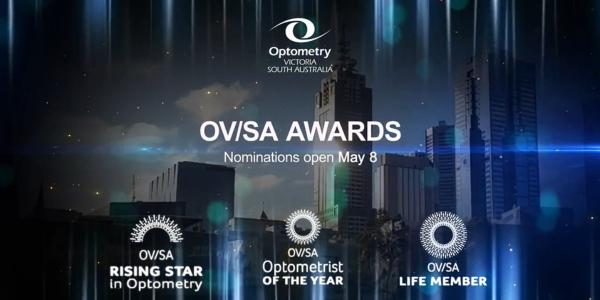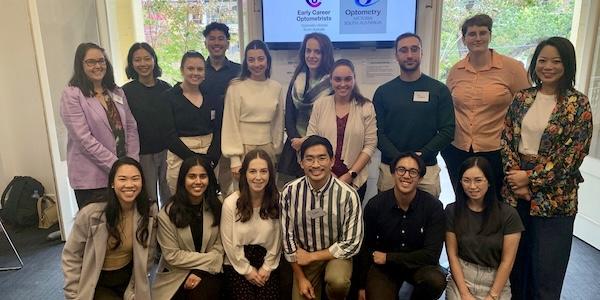Optometry Australia is encouraging optometrists and their patients to be vigilant with contact lens trial disinfection. More information on this is available in Optometry Australia’s 2017 infection control guidelines. We understand there has been conflicting and often confusing information disseminated by organisations and the media. Below is the latest information to help guide you as you make decisions regarding your patients. We also encourage members to review the updated American Optometry Association guidelines.
The following information is correct as of Monday 13th April 2020.
Background information
On the 10th of March, in an article published on the American Academy of Ophthalmology, it was suggested that patients whom wear contact lenses should switch to glasses temporarily. “Consider wearing glasses more often, especially if you tend to touch your eyes a lot when your contacts are in. Substituting glasses for lenses can decrease irritation and force you to pause before touching your eye,” Dr. Tuli wrote. They also suggested that “corrective lenses or sunglasses can shield your eyes from infected respiratory droplets.” They provided no evidence or referencing for this advice.
This advice was refuted in a special editorial from leading researchers in Contact Lenses Today (a weekly newsletter produced by the journal Contact Lens Spectrum ) on the 12th March with a statement saying “Despite myths and misinformation that have arisen over the past 48 hours, contact lens wear remains a safe and highly effective form of vision correction for millions of people worldwide.”
The British Contact Lens Association agreed on the 13th of March stating “there is no evidence to date that contact lens wear should be avoided by healthy individuals, or that contact lens wearers are more at risk for a coronavirus infection compared to those wearing spectacles. There is currently no evidence to suggest any correlation between the usage of contact lenses and the spread of COVID-19 or a coronavirus infection related to contact lens use. “
The American Optometric Association website, as of the 31st of March still states that “the American Optometric Association (AOA) and doctors of optometry want to reinforce that contact lenses are a safe and effective form of vision correction for millions of people” and “Glasses are not proven to offer protection. There is no scientific evidence that wearing spectacles or glasses provides protection against COVID-19 or other viral transmissions.”
The Cornea and Contact Lens Society of Australia on the 1st of April released a statement stating “There’s currently no evidence to suggest an increased risk of being infected with SARS-CoV-2, the novel coronavirus that causes the disease known as COVID-19, through contact lens (CL) wear… Contact Lens Wear is a safe activity with low rates of infections or other serious complications, despite poor compliance with safe practices.” They have also encouraged patients to cease lens wear when unwell until upper respiratory tract symptoms have improved.
An open access article on “The COVID-19 Pandemic: Important considerations for Contact Lens Practitioners” was published on 3rd April in the Journal Contact Lens and Anterior Eye by respected authors Lyndon Jones, Karen Walsh, Mark Wilcox, Phillip Morgan and Jason Nichols. It also states:
There is currently no evidence to suggest an increased risk of contracting COVID-19 through contact lens (CL) wear compared to spectacle lens wear and no scientific evidence that wearing standard prescription spectacles provides protection against COVID-19 or other viral transmissions.
The American Centre for Disease Control (CDC) updated their FAQs on the 13th of April to include “Currently there is no evidence to suggest contact lens wearers are more at risk for acquiring COVID-19 than eyeglass wearers” and “People who are healthy can continue to wear and care for their contact lenses as prescribed by their eye care professional.” They also encouraged that “Contact lens wearers should continue to practice safe contact lens wear and care hygiene habits to help prevent against transmission of any contact lens-related infections, such as always washing hands with soap and water before handling lenses.”
Specific advice
Advice published by Contact Lenses Today on 12 March 2020 states:
- Contact Lens Wear is Safe. Despite myths and misinformation that have arisen in recent reports, contact lens wear remains a safe and highly effective form of vision correction for millions of people worldwide.
- Proper Hand Washing is Essential. When using contact lenses or spectacles, careful and thorough hand washing with soap and water followed by hand drying with unused paper towels is paramount. For contact lens wearers, this should occur before every insertion and removal.
- Disinfect Contact Lenses. Contact lens wearers should either dispose of their daily disposable lenses each evening, or regularly disinfect their monthly and two-week lenses according to manufacturer and eye care professional instructions. A helpful guide for patients can be downloaded from the clinical insight section of this issue of contact lens update.
- Disinfect Spectacles and Glasses. Some viruses such as COVID-19 can remain on hard surfaces for hours to days, which can be transferred to spectacles wearers’ fingers and faces. This especially holds true for presbyopes (people generally over the age of 40). Most presbyopes require reading glasses and they may be putting them on and off their face multiple times a day. This age group appears to be among the more vulnerable population for being more seriously affected by COVID-19, as compared with contact lens wearers, who are typically younger.
- Discontinue Lens Wear Only if Sick. Ceasing contact lens wear when sick is advised, consistent with guidance for other types of illness.
- Spectacles are Not Proven to Offer Protection. There is no scientific evidence that wearing spectacles or glasses provide protection against COVID-19 or other viral transmissions.
Support for our members
We realise this is a difficult and uncertain time for all of us. Optometry Australia’s optometry advisor helpdesk offers our members dedicated experienced optometrists ready to provide confidential support.
Optometry Australia’s advisor helpdesk
Email: national@optometry.org.au
Phone: (03) 9668 8500
Operating hours: Monday to Friday, 9.00am to 5.00pm AEST
 View
View

